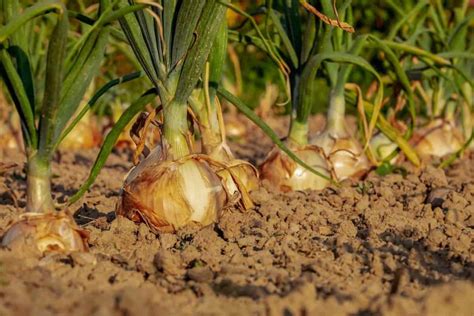Improve Onion Taste: Fertilizer's Impact
Onions, the pungent powerhouse of the culinary world, owe their flavor profile to a complex interplay of genetics, growing conditions, and, significantly, the fertilizers used. While a bountiful harvest is the goal of every gardener, maximizing yield shouldn't come at the expense of taste. This article delves into the crucial relationship between fertilizer and onion flavor, exploring how different nutrient ratios and application methods can dramatically impact the taste of your onions.
What Nutrients Influence Onion Flavor?
The key to flavorful onions lies in a balanced supply of essential nutrients. While all macronutrients (nitrogen, phosphorus, and potassium) are vital for growth, their ratios significantly affect onion taste.
-
Nitrogen (N): Essential for leaf growth, excessive nitrogen can lead to large, watery bulbs with a milder, less intense flavor. The plant focuses its energy on vegetative growth rather than bulb development, resulting in a less concentrated sweetness and pungency.
-
Phosphorus (P): Crucial for root development and overall plant health, phosphorus indirectly contributes to flavor by ensuring the plant can efficiently uptake other nutrients. Adequate phosphorus is key to a well-developed bulb.
-
Potassium (K): Potassium plays a crucial role in carbohydrate metabolism and sugar production within the onion bulb. Sufficient potassium contributes to the sweetness and overall flavor intensity. It also improves the bulb's storage quality, crucial for maintaining taste over time.
How Different Fertilizers Affect Onion Taste
The type of fertilizer you choose significantly impacts onion flavor. Here's a breakdown:
-
High-Nitrogen Fertilizers: Avoid fertilizers with a high nitrogen content (e.g., those with an NPK ratio like 20-10-10). These can lead to watery, bland onions.
-
Balanced Fertilizers: A balanced fertilizer with a slightly higher potassium content (e.g., 10-10-15 or 10-10-20) is generally preferred. This provides the necessary nutrients for growth while emphasizing sugar production for improved sweetness.
-
Organic Fertilizers: Compost, well-rotted manure, and other organic fertilizers often provide a more balanced nutrient profile, promoting healthier growth and superior flavor. They also improve soil structure, which aids in nutrient uptake. The slower release of nutrients from organic sources reduces the risk of over-fertilization.
-
Slow-Release Fertilizers: These fertilizers release nutrients gradually, reducing the risk of nutrient burn and promoting more even growth. This even distribution of nutrients contributes to a more consistent and flavorful bulb.
Common Mistakes to Avoid When Fertilizing Onions
Several common mistakes can negatively impact onion taste:
-
Over-fertilizing: Too much fertilizer, especially nitrogen, leads to excessive vegetative growth at the expense of bulb development. This results in bland, watery onions.
-
Using the Wrong Fertilizer Type: Choosing a fertilizer with an unsuitable NPK ratio can lead to unbalanced growth and poor flavor.
-
Incorrect Application Timing: Applying fertilizer too late in the growing season may not be absorbed effectively and may lead to poor quality onions.
H2: How to Optimize Fertilizer Use for Better Onion Taste
-
Soil Testing: Before applying any fertilizer, conduct a soil test to determine the existing nutrient levels. This will help you avoid over-fertilizing and tailor your fertilizer application to your specific soil's needs.
-
Choose the Right Fertilizer: Opt for a balanced fertilizer with slightly higher potassium, focusing on promoting sweetness and storage quality.
-
Follow Application Instructions: Carefully follow the manufacturer's instructions for application rates and timing.
-
Consider Organic Options: Explore the use of organic fertilizers for a naturally balanced nutrient supply and enhanced soil health.
-
Monitor Plant Growth: Observe the plants closely for signs of nutrient deficiencies or excess. Adjust your fertilization strategy accordingly.
H2: What are the best fertilizers for growing sweet onions?
The "best" fertilizer is highly dependent on your soil's existing nutrient levels, but generally, a balanced fertilizer with slightly higher potassium content is recommended for sweeter onions. Look for NPK ratios like 10-10-15 or 10-10-20, or opt for organic fertilizers like compost or aged manure which provide a more naturally balanced profile of nutrients. A soil test will help you fine-tune your fertilization strategy.
H2: Can you improve the taste of onions after they are harvested?
While you can't significantly alter the taste of an onion after harvesting, proper curing and storage can help maintain its flavor and quality. Curing allows the onion to dry slightly, improving its shelf life and reducing the likelihood of spoilage, which can negatively affect taste.
By carefully considering fertilizer choice and application, you can significantly improve the taste of your homegrown onions. Remember, a balance of nutrients, proper application, and attention to soil health are key to harvesting flavorful and delicious onions year after year.

